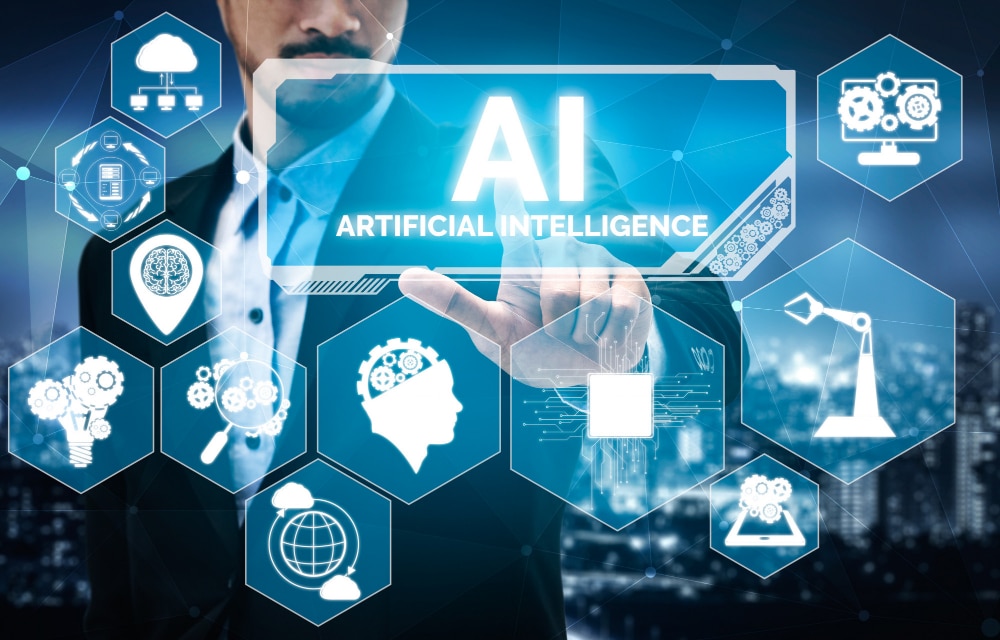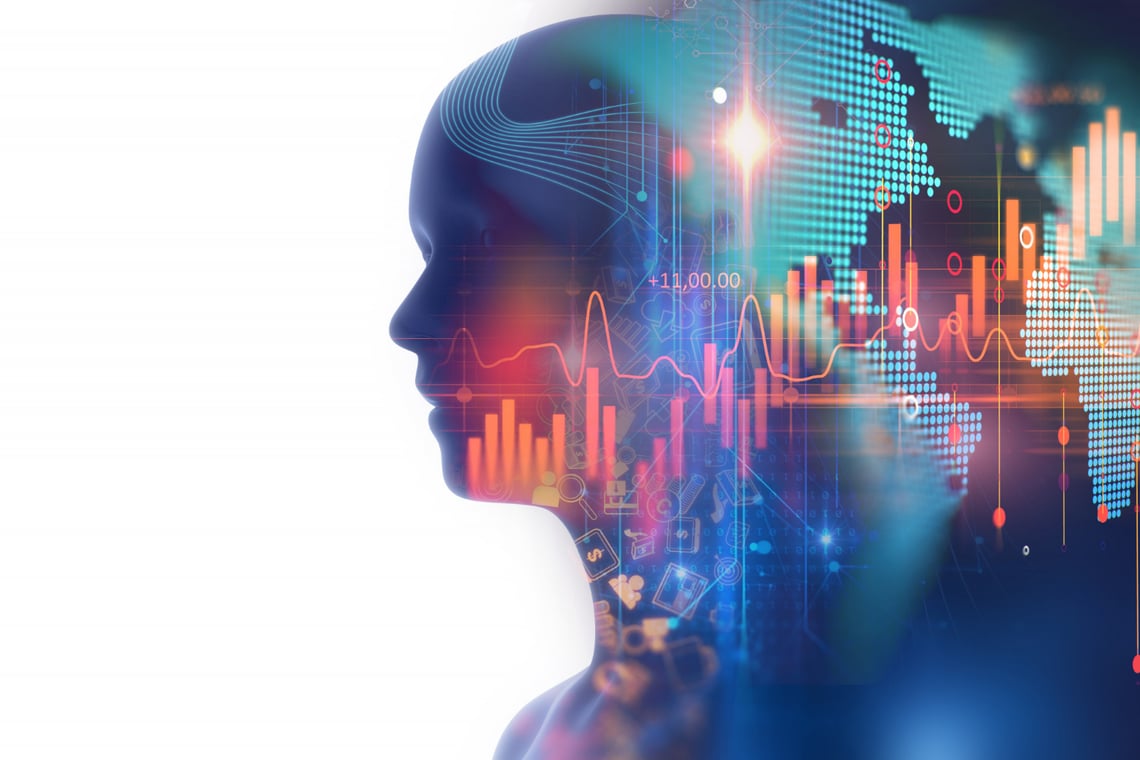There are thousands of cryptocurrencies and associated projects, each with its whitepaper, team profile, and investor deck. Combine this with a 24 hour market, and an unprecedented amount of ever changing data to consume – from social media to financial and business data – and it’s impossible for even the most seasoned crypto experts to make sense of it all. So much so, that traders are warned to “only invest what you’re prepared to lose”.
The truth is that the markets have evolved beyond human capabilities, and in order to keep up, we need to evolve our tools to match them. This is where artificial intelligence (AI) takes center stage. It can identify patterns in complex data sets and generate insights that lead to better trading decisions.
This rise of AI technology has led companies and software developers to explore the convergence of AI and Blockchain. But how is it currently being used, where are the opportunities, and what still needs to be done?
Summary
How Is AI Being Used in Traditional Finance?

In the traditional finance world, AI is used by the world’s top hedge funds. Hedge funds are financial institutions that manage the capital of wealthy investors — the wealthiest 1% typically — and invest in various, often unique, assets and securities.
Until recently, large financial organizations like hedge funds have used AI in quite a rudimentary way – to automate trades based on pre-existing strategy. However, a new generation of machine learning-driven hedge funds is taking advantage of the fact that computers are good at finding patterns in raw data — far beyond what humans can do.
In nearly every aspect of hedge fund management, from trading execution to portfolio management and risk management AI technology offers tremendous benefits. It can beat the market consistently with a success rate far outperforming human capabilities, due to three key advantages:
#1 Anticipating Market Movements
Artificial intelligence uses something called “predictive analytics”, which employs statistics and modeling techniques to try to anticipate future outcomes based on current and historical data.
This is extremely helpful in identifying which cryptocurrencies are likely to be profitable investments, and the best time to buy and sell.
#2 Portfolio Management
Intelligent AI algorithms process massive amounts of data much faster than humans, making them ideal for building and managing portfolios. These algorithms look at dozens of different factors or indicators predictive of future price movements and then combine these factors into a single model that predicts the direction of the markets with a high level of accuracy.
#3 Risk Management
Hedge funds and risk management have a symbiotic relationship. The latter is the key to success in the former, and without it, the industry would not exist. According to the chartered financial analyst (CFA) Institute: Risk management is a critical piece of any active investment strategy.
Risk management aims to reduce risks and prevent losses from volatility in the financial markets. Given that risk management relies on data, AI can help hedge funds get better information about their investments and positions. For example, AI can track social media conversations about companies that might be important to your portfolio, so you know the general sentiment around certain assets.
The Promise of AI in decentralized finance
Artificial intelligence (AI) promises to change everything from how we do business to how we live our daily lives, and cryptocurrencies are no exception..
The idea of using Artificial Intelligence (AI) to help drive better investment decisions is not a new concept. In fact, AI-led hedge funds are performing 22% above the global hedge fund industry.
This approach is starting to be adopted by the decentralized finance (DeFi) community, which is developing algorithms that trade on their own — without human intervention. But unlike the traditional hedge funds, these sophisticated tools aren’t limited to the wealthiest 1%.
This is because the transparent nature of blockchain means that there is significantly more public data available that can be used to train AI agents than the traditional markets. As a result, it’s much cheaper and simpler to create sophisticated trading tools which are available to all investors, not just those with significant funds to trade. For retail investors, this could mean that time spent staring at charts and graphs and analyzing price movements is no longer necessary.
How does it work in practice?
.AI driven DeFi products can offer unprecedented levels of insights available to sophisticated users. However, everyday users can take advantage of pre-packaged solutions governed by AI. This insight can, of course, be extremely valuable in determinations for trading decisions. Then there are neural networks — a new class of deep learning networks that have gained much traction in the past year to process sequential information efficiently. These are for price prediction, geared towards understanding and exploiting crypto price fluctuation.
The next step will be transitioning from a machine learning approach to a technique known as reinforcement machine learning. Using this approach means that the AI will be modeling the impact of its actions on the market. And this is especially valuable for low-liquidity altcoins.
The Bottom Line
We haven’t even begun to see how Artificial Intelligence will impact the crypto markets, and the blockchain space as a whole. Think about it; AI is all about automation, which will be able to perform tasks faster and more accurately than humans in many cases. The result is a greater profit with increased protection against the lows of the crypto markets. The most exciting part of this is that it could unlock profits not just for the 1%, but for all users – democratizing access to sophisticated financial products for the first time on a global scale.
By Marcello Mari, Ceo SingularityDAO



